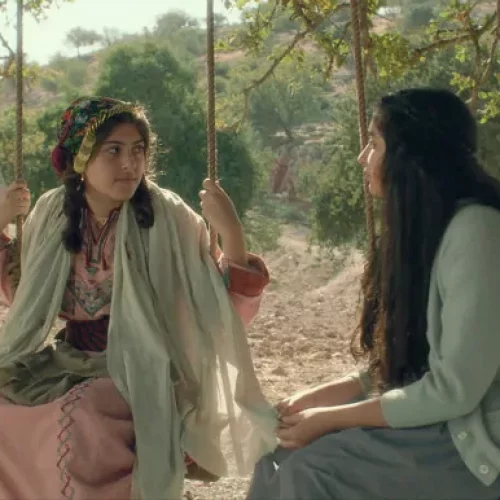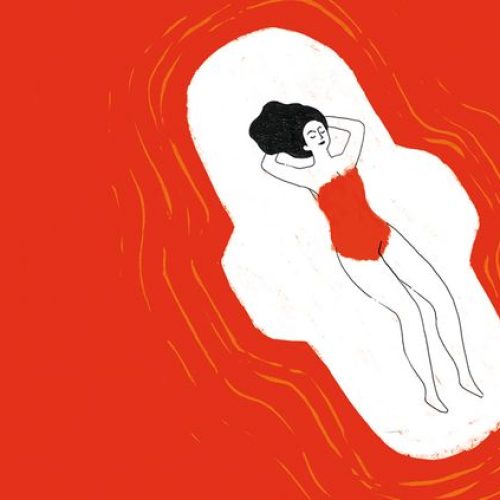For those who have just hit puberty and are already complaining about how difficult fasting is: consider keeping quiet as you have no idea of how easy you’re having it. It’s likely that if you’re a younger millennial, or a Gen Z, the transition from fasting being a choice to an obligation coincided with Ramadan’s arrival under the summer’s burning sun. With temperatures, on average, always reaching the high 20s or sometimes soaring well above 30 degrees Celsius (or higher, depending where you live)– coupled with extended fasting hours– the mental strain required to follow one of Islam’s most important of precepts made each day of fasting feel like a test of physical endurance more than a religious observance.
Growing up, I remember breaking my fast with my uncle who’d always go on a nostalgic walk down memory lane and start spinning tales of how much easier Ramadan was when he was a kid. About twenty-and-something-years-ago, when the holy month coincided with winter, in between two bites, he’d tell us how suhoor, was basically at breakfast time — anywhere between 6:00 and 8:00 A.M. — and iftar, in its turn, around dinner. Younger me couldn’t believe it. I half expected him to claim that the sun would try to rise a little earlier to add some challenge to the convenience! It didn’t end there, apparently, when Ramadan came around peak winter, he’d have to break his fast around 4:00 P.M. during school. Allowing for a pretty normal routine, it’s no wonder my uncle fondly dubbed this time the “Golden Era,’” and since then, I could not help but wonder when those times would return, or if they ever even existed given how my uncle’s tales seemed more like a myth than a distant memory.
In my time, we’d literally be praying for a cold breeze instead of blessings. Without fail, for my first six years of fasting, Ramadan would fall sometime over the summer. And as you can imagine, instead of enjoying our freedom from school outside, we found ourselves stuck indoors, drained of any kind of energy from the heat. Let’s not even get started on the fact that we were fasting for nearly twenty hours straight– it was like our forks had become foreign objects, almost alien to our parched tongues.
I’ll admit, there were moments when I questioned if Ramadan was some extreme weight-loss program, with iftar pushing past the 9:00 P.M. mark and suhoor kicking off before the birds even considered chirping. But that was our norm as we didn’t know any better and simply had to get on with it. But as the ninth month of the Islamic calendar is slowly inching back towards winter—with this year of fasting beginning on March 11 and expected to run until next month—I can’t help but ask myself if we’re finally catching a break from the struggles associated with summer fasting or if we’re simply trading one set of challenges for another.
@amaliah_com Nothing compares to Ramadan in the summer 🌙 #muslimtiktok #ramadan #amaliahclub #summerramadan ♬ The 60s – Sharon Tate
It’s true, despite the occasional existential crisis over the dinner table, those times did teach us a valuable lesson about appreciating what we have. With never more time to reflect on the essence of the month and regret every bite and sip wasted over the past eleven months, as challenging as it was, Ramadan really became a special moment of the year we’d look forward to. It allowed us to disconnect from the issues of city life and focus on what is arguably more important– whether it be family or personal growth. As many would take time off work or simply be enjoying summer vacation, those four weeks of abstinence turned into a collectively shared moment to slow down and introspect, reminiscent of the relief many felt during the initial lockdown after the breakout of COVID-19. You could meet your friends or cousins and spend hours in the evening catching up and sharing your personal updates until the early morning. Although you were all bored and exhausted, at least you were together. Spending time at the mosque was no issue as you were as free as one can be in our era; same went for visiting family and starting new habits. With no intention to speak in the name of all, I’m confident that this is the spirit Ramadan evoked to a whole generation.
Yes, those fasting for the first time are indeed experiencing a smoother introduction to the holy month. And while the physical stress of summer fasting has since left, it seems that many of the elements that made this moment so special have unfortunately gone with it. Most of us now spend substantial amounts of time away from home, either at work or at school, missing each other when we are meant to break our fasts as we remain busy with our corporate tasks. And, while the convenience of Ramadan’s observance over the winter aligns better with our daily lives, it has also inadvertently taken away from the shared experiences that have traditionally defined the essence of the month, making many of us miss the difficult summer fasting we used to hate.









